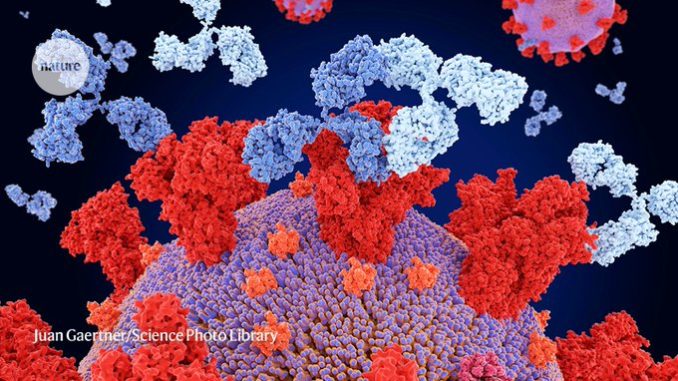
Language models similar to those behind ChatGPT have been used to improve antibody therapies against COVID-19, Ebola and other viruses.
At the height of the pandemic, researchers raced to develop some of the first effective treatments against COVID-19: antibody molecules isolated from the blood of people who had recovered from the disease.
Now, scientists have shown that generative artificial intelligence (AI) can provide a shortcut through some of this laborious process, suggesting sequences that boost the potency of antibodies against viruses such as SARS-CoV-2 and ebolavirus. A study published last week in Nature Biotechnology1 is part of growing efforts to apply ‘neural networks’ similar to those behind the ChatGPT AI platform to antibody design.
Antibody drugs for diseases including breast cancer and rheumatoid arthritis bring in more than US$100 billion in worldwide sales each year. Researchers hope that generative AI — neural networks that can create text, images and other content on the basis of learnt patterns — will speed up development and help to unlock antibody drugs for targets that have resisted conventional design approaches.
“There’s intense interest in discovering and engineering antibodies, and how one makes antibodies better,” says Peter Kim, a biochemist at Stanford University in California, who co-led the Nature Biotechnology paper.
